Supporting the growth of the Tourism Industry in Africa
After months of isolation while living in quarantine, travel is the leisure activity that I miss the most. And I’m not alone. While no one can say with certainty when tourism will recover, people are starting to dream again of getaways whether closer to home or to remote destinations. As more and more people go online to search where and when they can travel, accelerating the digitalization of the tourism sector will be key to adapting to the new tourism reality.
This is why we’re excited to partner with the United Nations World Tourism Organization (UNWTO) to develop an online Acceleration Program to train UNWTO Member States' tourism ministers, top travel associations and tourism boards on a range of digital tools to engage travellers at home, and encourage future travel when possible. Today, ahead of World Tourism Day, the organizations hosted the first UNWTO & Google Tourism Acceleration Program focused on insights from South Africa, Kenya and Nigeria.
Tourism is the backbone of many economies around the world. As data from UNWTO shows, tourism represents 9% of global trade for Africa, and 1 in 10 jobs directly and indirectly. Technology can foster new and better jobs and business opportunities for tourism in Africa while improving the overall wellbeing and prosperity of the region. Moreover, the tourism sector drives inclusive growth, as women make 54% of the workforce while in Africa they represent 69% of the workforce ; this is the highest share among world regions.
Africa is home to 30% of the world’s population, where hundreds of million of new users are coming online every year. Google Search is one of the places Africans go when researching and booking travel.
Our travel data insights and tools , available on our Think with Google site, can help tourism authorities and businesses identify new trends in consumer preferences. For example, as people increasingly search for local and outdoor tourism, businesses can react to these changing needs by doing marketing campaigns that highlight nature destinations, and they can prepare for an uptick in last-minute bookings.
In fact, an analysis of Search trends in Sub-Saharan shows that interest for travel and tourism is gradually recovering:
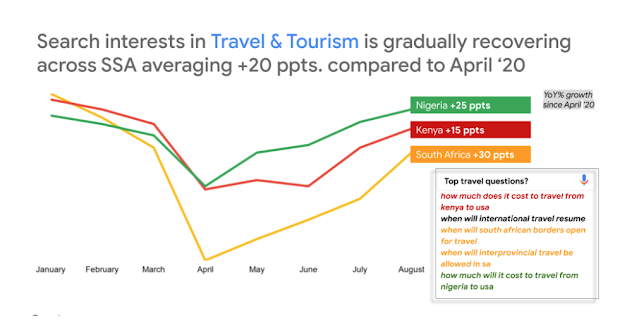
South Africa Travel Search TrendsGoogle Search data shows some encouraging signs of increased interest in tourism in South Africa:

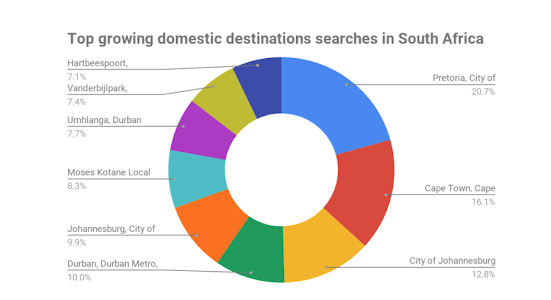
Kenya Travel Search Trends
The top three questions users asked Google globally related to travel conducted in July comprised “When can we travel again,” “when will international travel resume,” and “when will it be safe to travel again.” while top questions in August were related to where and when we can travel “right now”. In fact, 45% of the top 100 questions related to travel focused on the impact of COVID-19, the need to travel as soon as possible and travel safety.
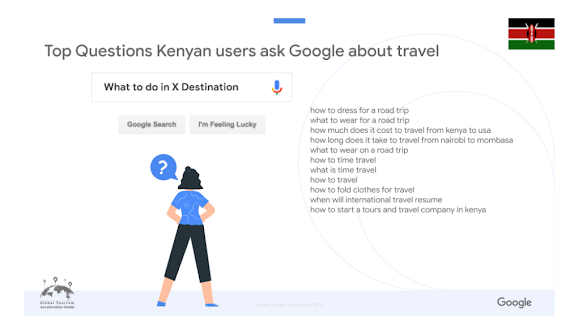
Travel Demand by Counties
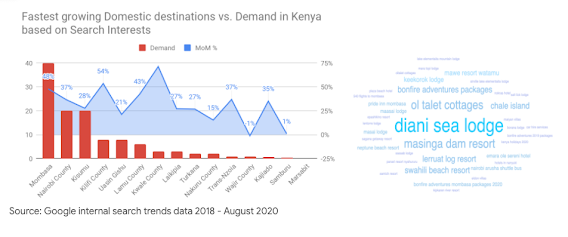
Nigeria Travel Search Trends
Since Nigeria announced the intention to reopen its borders to international travel on August 29th, search interest for travel has grown.
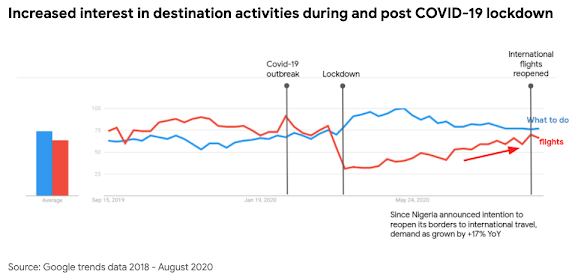
Travel Search Demand by State
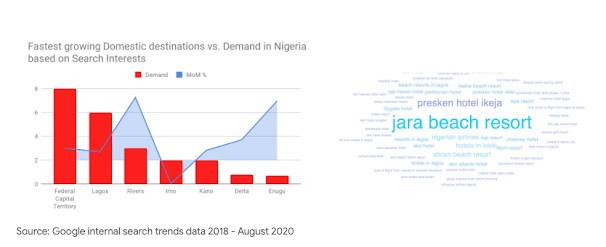
While this World Tourism Day marks a uniquely challenging period for tourism, it’s also an opportunity to prepare and find new ways to engage with would-be travellers. We remain optimistic about the travel industry’s future and its potential to drive inclusive growth in Africa.






